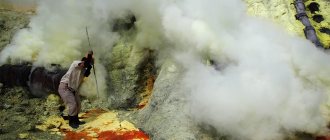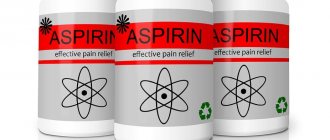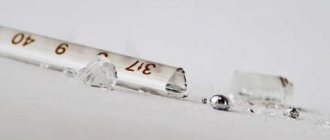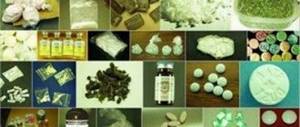The term psychotropic substances is a general term for all substances that affect the psyche through the mechanisms of the central nervous system. Specifically, they change perception, thinking, feeling and acting. These substances include not only drugs such as amphetamines, ecstasy or cocaine, but also antidepressants, tranquilizers and stimulants (alcohol, tobacco and caffeine). What they all have in common is that they cause mental effects that are only possible when acting on the nervous system.
What is included in the psychotropic group?
The psychotropic group includes the following medications:
- sleeping pills;
- drugs for putting a person under anesthesia;
- sedatives;
- neuroleptics
- antidepressants;
- analeptics;
- tranquilizers;
- anticholinergics;
- adrenomimetics.
It is allowed to take medications only as prescribed by the attending physician. The dosage is calculated individually for each patient, depending on his diagnosis and the severity of the symptomatic picture.
If the dosage is not observed, or if psychotropic substances are taken simultaneously with other incompatible drugs or alcoholic beverages, an overdose occurs.
Intoxication with medicinal substances leads to aggravation of the clinical picture of mental and nervous diseases and can cause deep coma and death.
Health implications
The influence of substances on the human body is very great and leaves behind many unpleasant consequences. People who take psychoactive substances have reduced immunity and worse appearance. A lack of vitamins and microelements leads to hair loss, splitting and brittle nails, irritation and redness of the skin.
Digestive upset manifests itself in the form of constipation and diarrhea. As a result of irritation of the gastric mucosa , peptic ulcers, gastritis, lack of appetite and other diseases can occur . Psychotropic substances leave their mark on the human psyche. This effect manifests itself in mood instability and attacks of aggression.
How does poisoning occur?
The main causes of poisoning with psychotropic drugs are taking the drug in the wrong dosage, using it when there are contraindications, and mixing it with alcoholic beverages. What happens to the body of a person who takes a pill?
When psychotropic drugs enter the gastrointestinal tract, they stick together into conglomerates, as a result they remain in the body for a long time.
Their active components are gradually absorbed into the mucous membranes and circulatory system, maintaining a constantly high level of toxin in the body.
When substances with a psychotropic spectrum of action enter the brain through the bloodstream, they cause dysfunction of the central nervous system. In the case of simultaneous use of medications with alcoholic beverages, alcohol ethers enhance the effect of psychotropic components, inhibiting all vital functions.
The clinical picture of intoxication with psychotropics depends on the amount of the drug drunk by the patient and the nature of the poisoning - whether the person took an excessive dosage or mixed the drug with alcohol.
Formaldehyde poisoning
About the dangers of drunkenness
It is not always the case that a criminal needs medications in order to take a person’s wallet. “The applicants complain that they were given something to drink and then robbed. But this is not always the case: if you take azaleptin or other potent drugs, then its effect will not pass without leaving a trace - a person may die without medical assistance. More often, victims drink alcohol or illegal substances with anyone, and when they lose control of themselves, they simply fall asleep. That's all. And in order to justify themselves to their loved ones, they try to present themselves as victims of insidious poisoners. Although this does not relieve the guilt of those who rummaged through the pockets of the sleeping man,” says the operative.
According to him, there is a whole caste of swindlers who rob those sleeping in transport.
train
Photo: IZVESTIA/Alexander Kazakov
“On late trains you can see people, most often men, who quickly walk through the entire train from the first to the last car or vice versa. One is ahead, the second is slightly behind. These are “stealers” looking for drunk passengers. Traditionally, such cases were dealt with by representatives of the Roma ethnic crime, but today they have many competitors,” says the policeman.
Pocket Moscow: the most criminal metro stations named
The most common crime remains theft
Poison Clinic
When taking an increased dose of psychotropic drugs, a person falls into a state of stupor and reacts poorly to external stimuli, which is associated with depression of the central nervous system.
Main symptoms of poisoning:
- abnormal heart rhythm;
- panic state;
- hypotension;
- diarrhea;
- Strong headache;
- tremor of the upper and lower extremities;
- vomit;
- internal heat;
- fainting;
- breathing disorder.
The intensity of the symptomatic picture depends on the amount of toxins in the body, the patient's diagnosis and general physiological signs. Depending on the severity of the intoxication clinic, there are 4 stages:
| Stage 1 | Stage 2 | Stage 3 | Stage 4 |
| 1. Lethargy and apathy. 2. Severe drowsiness. 3. Outbursts of mental excitement. 4. Inadequacy in behavior. | 1. State of coma. 2. Slight weakening of muscle tone. 3. Pupil dilation. | 1. Lack of reflexes. 2. Reduced pain perception. 3. Decreased muscle tone. 4. Rare, shallow breathing. 5. Pupil dilation. 6. Hypotension. | Awakening stage. The patient undergoes it after treatment. It is characterized by a gradual restoration of all vital functions of the body. This stage has a high risk of complications due to poisoning - pneumonia, mental disorders, trophic processes, cerebral edema. |
Stage 1 of intoxication is the easiest and relatively safe for the patient. The symptomatic picture is not particularly intense and is relieved by the use of drugs - sorbents.
Timely withdrawal of psychotropic substances taken, drinking enough liquid, and bed rest will restore the body. But it is necessary to consult a doctor in any situation; you may need to change the medication or stop taking it.
Stage 2, in the absence of timely treatment, can lead to a coma. This pathological condition is associated with respiratory failure and possible cardiac collapse. Stage 3 is burdened by the development of collapse, which cannot be stopped with general medications; swelling of the brain is formed.
Doctors call stage 4, which occurs after medical therapy, complicated. Due to a weakened immune system and the negative impact of toxins on the body as a result of poisoning, patients experience somatic disorders. Death after treatment is provoked by an abscess form of pneumonia, and heart failure develops.
The most severe symptomatic picture occurs in case of poisoning with medications of the analgesic group (Codeine, Morphine, Dionine, Promedol). These drugs, when taken in excess dosage, affect the organs of the respiratory system, causing temporary cessation of breathing. Death can occur almost immediately after poisoning.
Causes
Psychotropic medications are usually prescribed by a psychiatrist. It is an adjuvant that helps control the course of severe mental illnesses while alleviating the symptoms of the disease. However, psychotropic medications do not treat the diseases themselves. When prescribing them, the doctor sets the dosage of the medicine, taking into account the severity of the disease and the physical condition of the patient.
And yet, when using these drugs, symptoms of poisoning often occur (in case of overdose). As a result, a heart rhythm disturbance occurs, chills appear, the temperature rises, and consciousness is impaired. Seizures, a sharp drop in blood pressure and collapse are also possible. In case of poisoning, nausea, vomiting, diarrhea occur, and in case of severe overdose, there is a threat to life.
Therapeutic measures
In case of poisoning with psychotropic drugs, it is necessary to immediately call an ambulance and carry out pre-medical procedures. If there is vomiting, muscle weakness, or a person constantly loses consciousness, he must be placed on his side to prevent asphyxia from vomit. Any self-medication is excluded.
Depending on the severity of the symptomatic picture of intoxication, the patient will be referred to the toxicology department or intensive care unit.
To restore vital functions, the patient is given artificial ventilation, medications are prescribed to normalize the heart rate, and medications are prescribed to restore the acidity of the gastrointestinal tract.
In case of severe poisoning, when there is a high risk of coma, detoxification is carried out - hemosorption, peritoneal dialysis, repeated gastric lavage, hemodialysis. To prevent complications, in particular pneumonia, antibacterial therapy is carried out. Antibiotics are prescribed individually, depending on the physiological characteristics of the body and the severity of intoxication.
The following medical procedures are carried out in case of poisoning with psychotropic drugs, depending on the stage:
| 1 | 2 | 3 | 4 |
| Drug therapy as needed. Refusal to take the drug that caused the poisoning, cleansing the stomach (inducing vomiting), taking absorbent drugs. | Gastric lavage using a special probe, freeing the mouth and nasopharynx from vomit, installing an air duct to facilitate breathing. Carrying out oxygen inhalations, using an oxygen mask. Intravenous administration of Cordiamin (2 ml), Ephedrine (5%, 1 ml), Polyglucin (400 ml), Prednisolone in combination with Reopoliglucin (60 to 90 mg), Hydrocortisone (125 mg). | Antibacterial therapy to prevent possible complications. Intravenous administration of drugs from the sulfonamide group, Heparin (5000 units) up to 4 times a day. Vitamin B1, vitamin B6 (4 to 6 ml). | |
An antidote is used to quickly remove the toxin from the body. It is selected individually, based on which drug was taken that caused dysfunction of internal organs and systems. There are 4 substances in total - antidotes for intoxication with psychotropic drugs:
- Unithiol;
- Mecaptide;
- Naloxone;
- Flumazenil.
Mecaptide and Unithiol are antidotes of the toxicotropic group. They are administered to the patient by intramuscular injection at the same time. The active components of antidotes bind to the chemical components of the drug, accelerating the process of their elimination from the body.
Naloxone and Flumazenil are administered intramuscularly, the spectrum of action is aimed at normalizing respiratory function. To speed up the effectiveness of the drug, Naloxone or Flumazenil is administered every half hour, if necessary, intravenously and intramuscularly alternately.
Flumazenil is more aggressive, prescribed for severe intoxication with a high risk of coma. Method of administration – jet, maximum dosage – up to 3 mg. Contraindication: epilepsy.
Intoxication with medications of this group often leads to death. To prevent serious consequences, you need to take medications carefully, strictly following the dosage and not mixing medications with alcoholic beverages. If you notice the first signs of intoxication, you must immediately call an ambulance; any delay can lead to death.
Negative effects on the human body
During the use of psychotropic substances or immediately after it, processes occur in the nervous system, which are characterized by the appearance of hallucinations, severe excitability or stupor. Possible confusion of consciousness, a feeling of fear or, conversely, ecstasy.
Over time, memory impairment occurs; a person does not even remember events that occurred very recently. There is no opportunity to assimilate new information, acquire skills, the sense of time is disrupted. Excessive use of sleeping pills and psychoactive substances can lead to coma.
A person may be in a state of apathy and not take care of himself or his health. Significant changes occur throughout the body, which can lead to disruption of metabolic processes in the body. As a result of the use of harmful substances, the functioning of every human organ and system is disrupted. The use of such drugs leads to severe dependence.
Receipt
Receipt.
LSD is produced by reacting naturally occurring lysergic acid with diethylamine. Lysergic acid, in turn, is obtained from ergot ergoalkaloids, which is obtained by cultivating the fungus Claviceps Purpurea on rye cereals. Global production of lysergic acid is measured in kilograms per year, so the cost of semi-synthetic LSD is quite high.
The possibility of cultivating the ergot producing fungus on an artificial nutrient medium is being studied.
Possible complications
There are no negative consequences for mild poisoning with drugs from the group of antidepressants. Rare complications:
- tracheobronchitis and pneumonia;
- swelling of the cerebral region (brain);
- development of myorenal syndrome, acute renal failure.
The frequency of such complications is influenced by the speed of first aid and delivery of the victim to a hospital setting, and the time of initiation of appropriate treatment.
Breathing problems
Negative consequences of severe overdose:
- exotoxic shock;
- respiratory dysfunction;
- convulsive syndrome.
Lethal (deadly) outcome occurs with severe impairment of intracardiac conduction or respiratory function, ventricular fibrillation, exotoxic decompensated shock.
Negative consequences are also associated with sexual function. Drugs from the antidepressant group affect the uptake of norepinephrine or serotonin and significantly reduce libido, potency, and impair ejaculation. Negative effects on the sexual sphere in women and men more often occur during therapy with antidepressants Citalopram, Fluoxetine, Sertraline, Paroxetine, Venlafaxine, Imipramine.
Some drugs from the antidepressant group promote weight gain (Paroxetine and Amitriptyline).
Attention! The relative risk of suicide is increased during therapy with the drugs Venlafaxine, Imipramine, Escitalopram, Duloxetine, Paroxetine, Fluoxetine.
Classification
Currently, the armed forces can use the following psychotropic substances:
Bi-Z. It is a drug in the form of white, odorless crystals. Insoluble in ordinary water, but disintegrates in chloroform and also in acidic water. Therefore, for combat purposes it is used in the form of aerosols. After entering the body, the effect of the drug is observed after 30 minutes or within several hours. If the concentrations are small, the person simply becomes drowsy and complains of a general deterioration in health. In the case of high concentrations of the drug, at first the heartbeat quickens, the mucous membranes dry out, but after some time the person becomes lethargic. Symptoms of drug exposure disappear after 2-3 days.
There are other psychochemical substances, but they are prohibited for use in the army. The above drugs are also not used, but are one of the army resources that can be used only in extreme cases.









